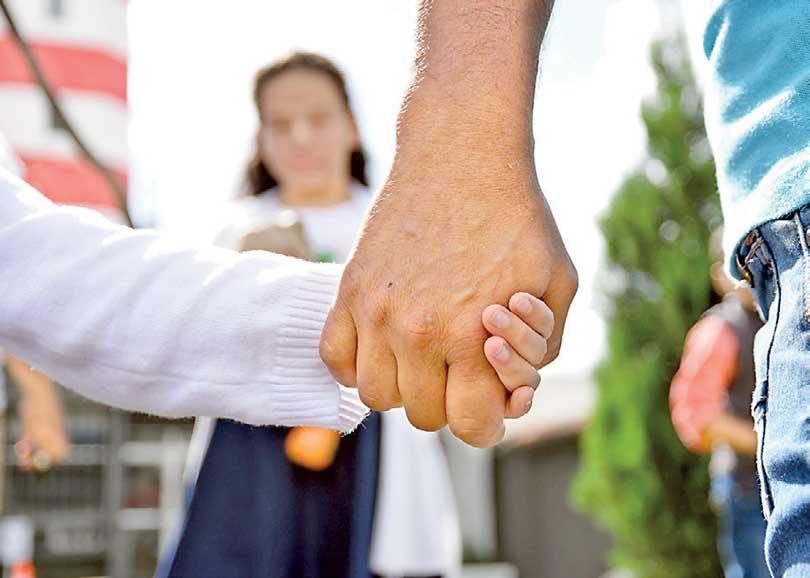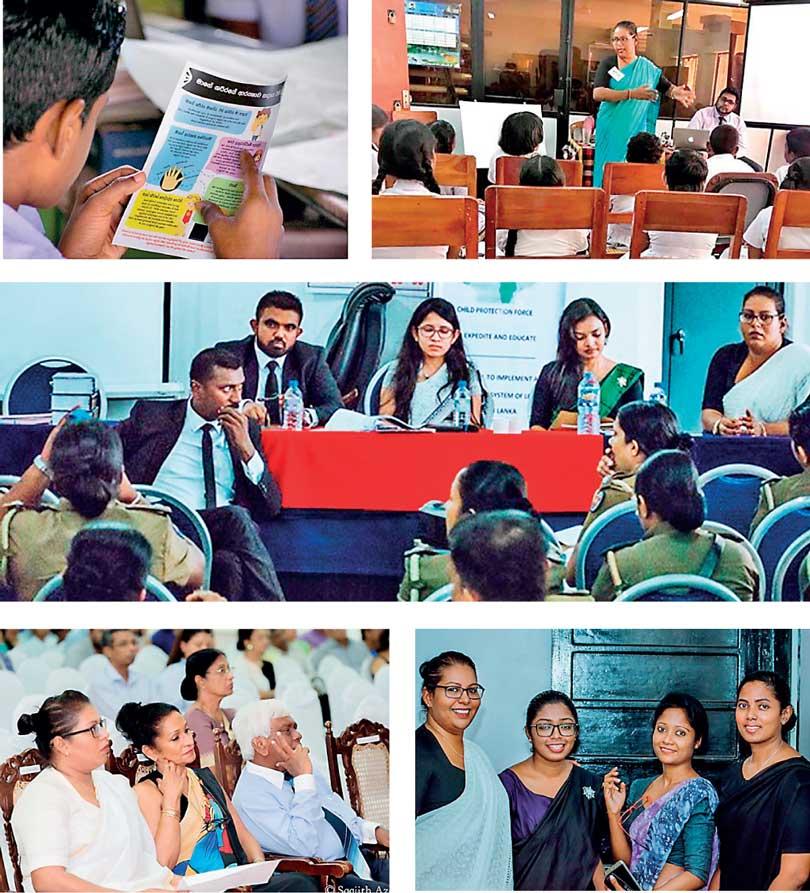16 Aug 2019 - {{hitsCtrl.values.hits}}

 Nimansa* has spent most of her life in a Child Care Institution (CCI). She was first raped at the CCI at the age of eight. She was raped again and impregnated at the age of 14, during which time she was physically abused by the police. She was convinced to give the child up for adoption by her Probation Officer (PO). After being forced to sign an affidavit that listed her age as 27 despite being 15, her baby’s adoptive parents collected the baby and offered her money, which she refused and her PO pocketed. Immediately afterwards, she was put on a bus and sent back to a CCI. Being depressed, and physically and psychologically traumatized, she ran away from the CCI and became addicted to heroin. The police apprehended her and sent her back to the CCI, thus beginning a vicious cycle of her running away, being captured and returned. On many occasions, she was forced to hide atop roofs and trees, sometimes for several days, in order to escape abusive authority figures and avoid capture.
Nimansa* has spent most of her life in a Child Care Institution (CCI). She was first raped at the CCI at the age of eight. She was raped again and impregnated at the age of 14, during which time she was physically abused by the police. She was convinced to give the child up for adoption by her Probation Officer (PO). After being forced to sign an affidavit that listed her age as 27 despite being 15, her baby’s adoptive parents collected the baby and offered her money, which she refused and her PO pocketed. Immediately afterwards, she was put on a bus and sent back to a CCI. Being depressed, and physically and psychologically traumatized, she ran away from the CCI and became addicted to heroin. The police apprehended her and sent her back to the CCI, thus beginning a vicious cycle of her running away, being captured and returned. On many occasions, she was forced to hide atop roofs and trees, sometimes for several days, in order to escape abusive authority figures and avoid capture.
Prasanna* was burned and then sadistically raped by his stepfather, when his mother was not at home. His mother was a victim of domestic violence inflicted by the same man. They had to be evacuated from Kotte to an SOS Children’s Village, where they lived for one year until his stepfather was finally arrested.
Nimal*, a schoolboy at a popular Colombo school, witnessed brutal domestic violence wherein his mother was physically assaulted by his father. His father then forced Nimal to watch him rape his mother while instructing him on how to rape as well. He underwent significant psychological trauma.
*Not their real names
All three of them are part of the approximately 40 cases handled by the Child Protection Force (CPF), a non-profit organization that represents underprivileged, abused and misrepresented children pro-bono and campaigns to reform the judicial system of Sri Lanka. The organization was founded by lawyer Milani Salpitikorala in 2017. Salpitikorala explained that she started the organization to reform the Sri Lankan juvenile justice system due to its inefficiency and some implementational flaws such as the unnecessary institutionalization and accidental mental abuse of children. “What I wanted to do was to improve the juvenile justice system of Sri Lanka- because the laws are there, and we can do a lot with the existing laws, but their implementation is the problem,” she said. “The system set up for juvenile justice is that there are few actors when it comes to juvenile justice- it may be a victimised child or it may be a child offender. Regardless of whether it is a victim or an offender, they need to meet with the juvenile justice system and go through it,” she added.
According to Salpitikorala the first point of contact is the police and it’s the courts. So “This is where the secondary victimisation takes place. Your time is wasted and you feel insecure because sometimes the accused is out on bail, but the child is put in a probation home with other child offenders. This is entirely wrong,” she explained. She added that the current system considers the safety of the child from a physical perspective, but not at the psychological trauma a child has to endure. “That trauma is tremendous. This is what I wanted to change,” she said.
Rights not met
Salpitikorala elaborated on the problems facing the justice system; largely its inability to take into account the psychological impact its decisions would have on a child, and how she and the CPF aims to reform it. “Our main aim is to improve the juvenile justice system, but this involves a very holistic approach to it. You can’t just be very rigid on the laws as you apply them. You have to think about the trauma that children experience- there is a lot of psychological work to be done as well. I am qualified as a Neuro-Linguistic Programming (NLP) practitioner-that is to work on the psychological part of children who experience abuse or neglect. Even child offenders-when you hear their stories, it’s never something they wanted to do,” she explained.
Conditions in Sri Lankan CCIs are notoriously poor. A report of a study conducted by the United Nations Children’s Fund (UNICEF) and the Department of Probation and Child Care Services found that, “a considerable number of institutions (17.4 percent) have unhygienic types of latrines,” and that among professionally qualified staff members, only 44 percent are trained. The report further mentions that, “the lack of staff with counseling skills was reported as a problem by about 60% of the Probation Commissioners.”
Salpitikorala stressed that institutionalised children faced immense psychological trauma. “Sri Lanka is a signatory to the United Nations Convention on the Rights of the Child. We are under obligation to adhere to those rights. My organization works at the grassroots level. I know that most of those rights are not met with,” she said.

Milani Salpitikorala (extreme left )
The CPF is also attempting to reform individual parts of the juvenile justice system. They have chosen Gampaha District to host a programme to educate police officers because of a newly-constructed child friendly prison and a ward for children- who have experienced trauma (Lama Piyasa)- located there. Those two organizations and the CPF work together for the betterment of the juvenile justice system. Salpitikorala explained, “Child related complaints come into the Women and Children’s Department. I conduct workshops for them. I have done four so far. I do a lot of meditation, motivation and self-help for the police.”
According to Salpitikorala, female police officers often suffer from high levels of stress due to large workloads and being female in a male-dominated environment. “They told me that if a senior male comes in and tells them to stop doing that and do this, they have to do it,” she said. These new tasks are often menial and demeaning, for example preparing tea and cleaning the police station. They are also attempting to educate and support POs. Commenting on the necessity of assisting POs, Salpitikorala said, “The officers are very under-resourced. “I feel they may be underpaid as well. I hope to do programmes for POs as well. I have invited them for the police programmes and they have obliged. I hope to make them more efficient through self-improvement,” she said.
The CPF also wishes to reform the justice system to ensure that existing laws are properly implemented and enforced. For example, many media outlets publish the names, personal details and photographs of children (online and in print); despite there being a law in the Children and Young Persons Ordinance that prohibits this. The CPF has begun producing, publishing and distributing material aimed at better educating the general public on such issues.
Nimansa has now found employment and does clerical tasks and is hoping to sit for her O/L Exam in 2020, before following her dream of qualifying for and eventually becoming a social worker. After Prasanna’s stepfather was arrested, he and his family were able to move back to Kotte. Nimal’s father was separated from the family and issued a restraining order. His mother got custody of Nimal and ownership of their home. These are just a few of the lives in which the CPF has made a difference.
Salpitikorala is optimistic about the future. “My biggest dream is that one day Sri Lanka will adhere to all the rights in the UN Convention on the Rights of the Child. Then Sri Lankan children would have a perfect future,” she said. Until then, the Child Protection Force would continue to fight for the rights of children in Sri Lanka.
16 Apr 2024 23 minute ago
16 Apr 2024 25 minute ago
16 Apr 2024 1 hours ago
16 Apr 2024 1 hours ago
16 Apr 2024 2 hours ago